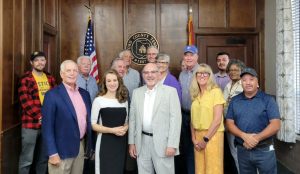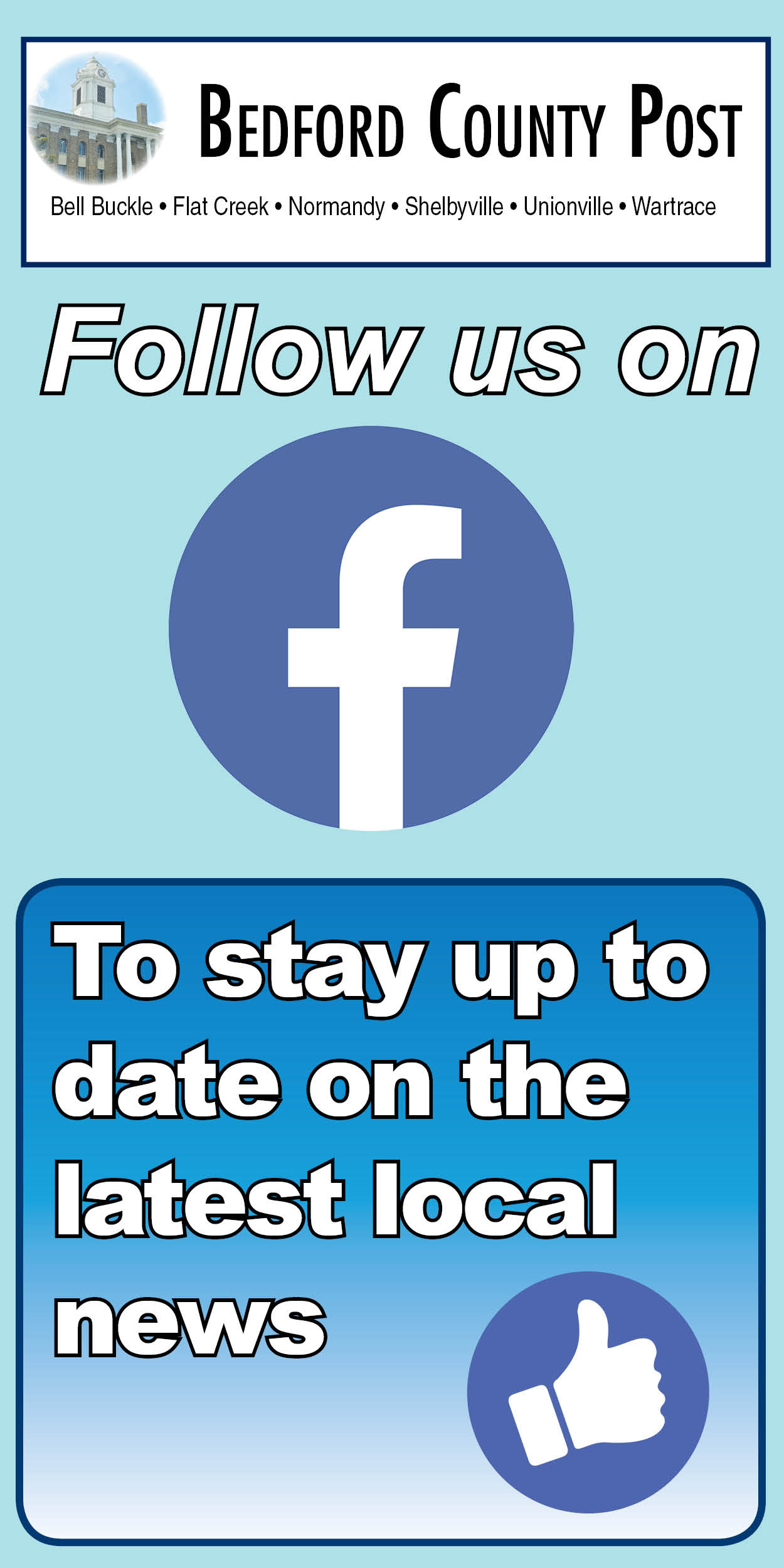
Members of the Connect Bedford team.
By ZOË WATKINS
zwatkins@bedfordcountypost.com
A team in Bedford County has create an ambitious, yet possible, goal for over the next few years: to become the first rural county in Tennessee to provide all its residents access to affordable, reliable, high-speed internet.
That team is made up of several community leaders, officials, and business representatives called Connect Bedford. They have been meeting regularly over the past 16 weeks with other representatives from the Benton Institute, the Tennessee Department of Economic and Community Development, Connecting the Heartland, and the UT Extension Institute of Agriculture.
Tracy Strassner, who has been one of the members heading the group, said, “I think where we are right now is we have incredible momentum. We’ve got leadership focused on the momentum to extend reliable, affordable high-speed broadband to all of Bedford County.”
After doling out surveys throughout the county last July to pinpoint areas that were most underserved, the team collected data to present to helpful organizations as well as to prepare for grant applications.
The purpose? To show the need.
According to data found by county zoning director Chris White, Bedford County residents have worse access than in 2006, with 52% of residents having access then and only 38% having access now. This takes into account the digital divide increasingly seen as more and newer technology has become available.
“We know that that gap will continue, and it showed in our survey results as well,” said Strassner.
Of the 1500 survey responses received from Bedford County residents, only 31% responded that they were satisfied with the affordability of their internet, 34% were satisfied with their reliability, and 35% were satisfied with their speed.
Total, over 60% of the respondents were either considered unserved or underserved. According to the data, 78% resort to cellular for internet access.
The most common uses included, at number one, government services, followed by communication and email, education, telehealth, remote work and agriculture.
“In the ag space, if we use the tools with the technology, we can actually even exceed what we’re doing today, which is being the number one beef producing county in Tennessee. And people want it. They want to be smarter about how they’re planning and using their time. And this is a time saver as well as an enabler for future generations…” said Strassner.
The plan moving forward involves four steps: infrastructure, affordable access, digital skills and literacy, and then communication and social engagement.
They are looking at teaming up with United Communications to get the infrastructure and fiber put into place, even to the last acre. Then, they will look at how to affordably provide access to this infrastructure. Once the access is provided, Strassner said they want to aid in the “literacy” portion—that is, how to use the technology to improve quality of life.
This will be a long process, according to Commissioner Greg Vick, who has also helped lead the Connect Bedford team. In the meantime, while infrastructure and grants are being pursued, the group is looking at setting up hotspots in portables, fire halls, and the library.
“Connected Community Facilities— this was one of the ideas that was spawned— how we can connect our communities and create hubs so that people can go have access?” said Strassner.
However, there are several grant opportunities to pursue that will provide broadband to every household. For example, $120 million can be made available through the Middle Mile Broadband Infrastructure grant. Part of the guidelines include demonstrating new or improved connection in areas currently lacking 100/20 mbps.
There is also the BEAD grant (Broadband Equity Access and Development Program), which will allocate to the state through TNECD $813 million. There are also several grants that will help with digital literacy—that is, teaching people how to utilize increased broadband access.
But it will be the data and dedicated teamwork that the Connect Bedford hopes will give them an edge in the process of funding broadband acceleration. “The power of the survey is that we were able to reach out to so many people in so many ways,” said Strassner.
Many of the grants also require the county to provide 20% or 30% in matching grant funding. Vick explained during the last Rules and legislative Committee meeting that, “If we do full implementation on connecting everyone in Bedford County, it’s probably a three-year process, and we’ll have to put up money to that. So I want everyone to be prepared that this is going to be expensive. And we can’t do it unless we match the grant.”
You can find more information about Connect Bedford on their Facebook page.
State Rep. Pat Marsh, who attended the Connect Bedford presentation last Wednesday, said, “I’m speaking to you all not only as a state rep but as a citizen of Bedford County, this is huge for our county and I want to thank you all very much for giving up your time and getting all this started. We need it really bad in our county for our teachers and our students and businesses and even our farmers. You can’t get by without broadband today.”





![For-Tips-and-Ideas-Phone-300x250-Bedford-County-Post[1]](https://www.bedfordcountypost.com/wp-content/uploads/2023/09/For-Tips-and-Ideas-Phone-300x250-Bedford-County-Post1-300x250.jpg)
![Subscribe-Now-300x250-Bedford-County-Post[1]](https://www.bedfordcountypost.com/wp-content/uploads/2023/09/Subscribe-Now-300x250-Bedford-County-Post1-300x250.jpg)
